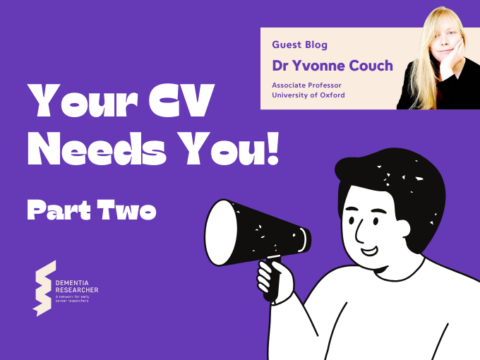A well-written cover letter and CV are both crucial in securing an interview. It is the first opportunity in any job application for you to impress your prospective employer, and therefore it is vital that you present yourself well on paper.
When writing your CV, it’s important to adapt your writing to the format and expectations of the job application process – to give a brief but engaging account of relevant qualifications, skills and experiences. For many researchers, however, writing style isn’t the only hurdle when it comes to building an effective CV.
Now, more than ever, research is takes place in a truly global environment – research collaborations and education programmes are shared across continents. English frequently is referred to as the “universal language of research” (over 80% of journals indexed in Scopus are published in English) – and it is therefore becoming more common for prospective employers to request job applications written in English. This can be an obstacle for researchers who don’t speak English as a first language.
For researchers who don’t feel confident writing in English, we at the Nature Research Editing Service have compiled a few quick tips below to help with English CV writing. For more general tips on writing academic CVs, see here.
7 tips for English CV writing
- Keep your sentences short and clear. Avoid writing complex sentences as these can be confusing and you may lose the attention of your prospective employer.
- Write in past tense. The one exception might be when describing your current role – you may prefer to describe tasks that you’re still doing using the present tense.
- Use ‘dynamic’ and ‘action’ verbs such as attained, accomplished, conducted, established, facilitated, founded, managed, etc (or attaining, accomplishing, etc if you are describing your current role). See more here.
- Use abbreviated sentence construction. This is acceptable for CV writing in order to save space. Where possible, you can leave out sentence subjects (“I”, “my”), possessive pronouns (“my/mine”) and even articles (“the”, “a”). You can use lists – replacing “and” with a semicolon. Make sure to have a friend or colleague whose native language is English to check that your sentences are clear and easy to read.
- Spacing, aligning and layout are very important when you write your CV, in order to create a positive and professional impression.
- Use a thesaurus to help you improve vocabulary and avoid repetition.
- Proofread. Look out for grammatical and spelling errors, as well as sentences that are not clear. You could also ask a colleague whose native language is English to proofread your CV.
As well as following these tips, you may wish to use a professional editing service to polish the your written English in your CV and job application documents. Professional editors will, for a fee, edit your documents to ensure the English is well-written and error-free.
Nature Research Editing Service is one such editing service. It is provided by Nature Research and available to all researchers — whether they’re publishing with Springer Nature or elsewhere. It offers English editing for all academic documents, including CVs and covering letters. See here for 10% off your first CV edit.
Reference
Van Weijen, 2012 The Language of (Future) Scientific Communication. Research Trends https://www.researchtrends.com/issue-31-november-2012/the-language-of-future-scientific-communication/

 Print This Post
Print This Post




